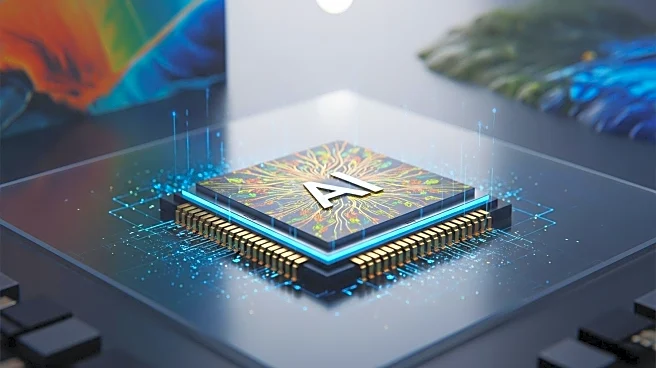What is the story about?
What's Happening?
Sakana AI, a tech start-up founded by former Google researchers David Ha and Llion Jones, has rapidly achieved unicorn status in Japan, valued at over $1 billion. The company focuses on developing 'collective intelligence' by merging existing and new AI systems, rather than creating large, energy-intensive models like ChatGPT. Sakana AI's approach has attracted support from major entities like Nvidia and Japanese banks, emphasizing collaboration and nature-inspired technology. The start-up aims to provide AI solutions that remain operational even if certain providers shut down, leveraging the best aspects of multiple systems.
Why It's Important?
Sakana AI's success highlights the growing importance of innovative approaches in the AI industry, particularly in regions with limited resources for large-scale data centers. By focusing on collective intelligence, Sakana AI offers a sustainable alternative to traditional AI models, potentially reducing energy consumption and environmental impact. This approach aligns with global trends towards more efficient and adaptable AI technologies. Sakana AI's rise also underscores Japan's efforts to reclaim its technological leadership and address workforce productivity challenges through AI and semiconductor investments.
What's Next?
Sakana AI plans to expand its AI research and development, while also assisting Japanese businesses and the public sector in deploying AI solutions. The company is working on projects like 'Tiny Sparrow,' a privacy-focused Japanese-language chatbot, and AI Scientist, aimed at automating scientific discovery. Sakana AI's partnership with MUFG to develop bank-specific AI systems indicates a growing interest in tailored AI applications across industries. As the AI market evolves, Sakana AI's unique approach may influence future developments in AI technology and business strategies.
Beyond the Headlines
Sakana AI's nature-inspired technology reflects a broader trend towards biomimicry in innovation, where natural processes inform technological advancements. This approach not only enhances AI efficiency but also promotes ethical considerations in technology development. The start-up's success in Japan, a country known for its 'soft power,' highlights the potential for cultural and collaborative influences in shaping global tech landscapes. Sakana AI's focus on privacy and sustainable AI solutions may set new standards for responsible AI development.

















